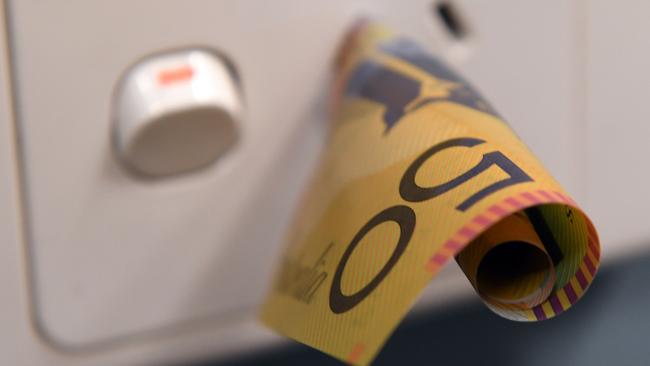NSW power costs: Poor households in line for break under Ausgrid proposal
POOR households could be sold cut-price power under a radical new plan to prevent the “bill shock” that has left thousands of struggling NSW families cold and hungry.
NSW
Don't miss out on the headlines from NSW. Followed categories will be added to My News.
- Regulator asks for power to grill energy price gougers
- Fat cats get power discounts while consumers struggle
POOR households could be sold cut-price power under a radical new plan to prevent the “bill shock” that has left thousands of struggling NSW families cold and hungry.
Sydney’s sole electricity distributor Ausgrid, which supplies power to more than 1.7 million homes, says it is considering a new “safeguard tariff’’.
“(It) would be aimed at supporting low income earners that could otherwise be disproportionately affected by our tariffs,’’ Ausgrid told a NSW Parliamentary power pricing inquiry.

The new tariff could deliver cheaper electricity to hundreds of thousands of Sydney’s poorest households, including pensioners and people on welfare.
Ausgrid’s proposal follows a recent 20 per cent hike in electricity prices, which is forcing some families to go without heating or even food.
The closure of coal-fired plants and a switch to more expensive “green’’ wind and solar energy has pushed power prices to record highs.
Low-income households are struggling to pay their soaring electricity bills, the NSW Council of Social Service (NCOSS) has warned.
It said a third of low-income household were going without medical treatment and a quarter were skipping meals to pay their bills.
An NCOSS survey found 30 per cent of low-income households were not using hot water for washing or bathing, 77 per cent were not using heating when needed and 62 per cent were going to bed early to cut bills.
NCOSS wants the state to fund a 17.5 per cent discount on power bills for the state’s poorest families.
“The unaffordability of electricity is having devastating, and potentially long-lasting impacts upon people’s health, wellbeing and long term financial stability,’’ NCOSS told the power inquiry.
“Having reduced their usage as far as possible, many are now running into debt, pawning household items, and going without a range of household essentials just to keep the lights on.’’
NCOSS wants the state to fund a 17.5 per cent discount on power bills for the state’s poorest families.
It has described the government’s existing Low Income Household Energy Rebate of $285 a year as unfair.
“This means that a single person in an urban apartment with annual bills of $1200 receives a $285 rebate, which is equivalent to 23.75 per cent of their costs,’’ NCOSS said.
“However, a family of four living in Bathurst with annual bills of $4000 would still receive a $285 rebate, which is equivalent to 7 per cent of their costs.’’
Ausgrid chief executive Richard Gross refused to divulge details of the proposed “safeguard” tariff because it had not yet been finalised.
He said the company was driving down costs.



